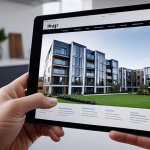Fast-Advancing Technologies Shaping the UK’s Future
The emerging technologies UK is embracing are rapidly influencing everyday life and industry. Breakthroughs in artificial intelligence, quantum computing, and biotechnology exemplify the advancements in technology driving the next wave of innovation. For instance, quantum computing research in the UK is reaching pivotal milestones, enhancing computational power for complex problem-solving across sectors.
Government initiatives have played a pivotal role in accelerating these developments. Funding programs and innovation hubs are designed to support startups and research institutions, transforming research into practical applications. The UK’s emphasis on fostering collaboration between academia and industry highlights a strategic approach to sustaining technological progress UK.
Also to discover : The Rise of AI in Everyday Technology: How is it Affecting Our Daily Lives?
Local innovation is also gaining traction, with several UK-based companies pioneering advancements in renewable energy technologies and advanced manufacturing. These milestones not only reinforce the UK’s position as a global technology leader but also offer tangible benefits to society, from improved energy efficiency to smarter infrastructure.
Understanding these technological trajectories is vital, as they demonstrate how policy, research, and industry interconnect to shape the UK’s future landscape.
In the same genre : How Has UK’s Technology Landscape Evolved Over the Past Decade?
Artificial Intelligence Enhancing Everyday Experiences
Artificial intelligence UK is rapidly transforming how people live and work, with AI in daily life becoming increasingly common. Voice assistants and smart devices powered by AI now simplify tasks such as managing calendars, controlling home environments, and providing personalized information. These technologies enhance convenience and efficiency in everyday routines.
Automation impact UK is especially significant in workplaces. AI-driven systems streamline repetitive tasks, improving productivity while also prompting shifts in job roles. Some jobs face automation, yet new opportunities arise in AI development and maintenance, illustrating a changing employment landscape.
UK-based AI startups contribute notably to technological progress UK. They focus on sectors like healthcare, finance, and logistics, accelerating adoption rates and innovation. Government backing and research collaborations support these ventures, fostering an environment where AI solutions gain traction quickly and responsibly. Overall, the integration of AI in personal and professional settings signals a profound transformation, shaping a smarter, more connected UK.
The Internet of Things and Smart Living
Smart home technology is revolutionizing daily experiences across the UK, as the Internet of Things UK ecosystem expands. Connected devices such as smart thermostats automatically adjust temperatures based on occupancy patterns, enhancing both comfort and energy efficiency. This integration extends beyond individual homes to urban infrastructure. Cities are adopting IoT sensors for public transport tracking, allowing real-time updates that improve commuter convenience.
Energy management benefits significantly from IoT innovation. Homes and businesses use connected meters to monitor consumption closely, enabling smarter decisions and reduced waste. The Internet of Things UK also fosters innovations in waste management and street lighting control, making cities more responsive and sustainable.
However, with the proliferation of connected devices, concerns about privacy and data security intensify. Safeguarding personal information and preventing unauthorized access remain critical challenges. Government regulations and industry standards are evolving to address these risks while enabling continued technological progress.
Overall, the rise of smart home technology and other IoT applications demonstrates a transformative shift towards more connected, efficient, and user-friendly environments that are steadily shaping life across the UK.
Next-Generation Connectivity: 5G and Beyond
Leading 5G UK networks are rapidly expanding across major cities and into rural communities, bridging connectivity gaps with unprecedented speed. This fast deployment underpins critical improvements in digital connectivity, supporting applications from ultra-responsive mobile browsing to seamless streaming experiences.
How does 5G improve daily life? The answer lies in its ability to deliver lower latency and higher bandwidth than previous generations. This means remote work becomes smoother, with real-time video calls and cloud collaboration tools experiencing fewer disruptions. Streaming high-definition content on mobile devices turns effortless, enhancing entertainment options.
Experts anticipate that high-speed networks will evolve toward 6G within the next decade, promising even greater device density and faster data exchanges. This ongoing advancements in technology will enable innovations like holographic communications and massive IoT ecosystems.
Government and industry initiatives are aligned to accelerate this technological progress UK through investments in infrastructure and setting standards. These efforts ensure a resilient digital foundation, critical for economic growth and social inclusion. The UK’s leadership in rolling out 5G networks demonstrates a commitment to future-ready connectivity benefiting both urban and remote populations alike.
Greener Technologies Transforming Sustainability
Green technology UK is a cornerstone of the nation’s commitment to environmental responsibility. The rise of eco-friendly innovation UK focuses heavily on electric vehicles (EVs), which are becoming increasingly common due to improved battery technology and charging infrastructure. These changes significantly reduce carbon emissions linked to transportation, a major contributor to climate change.
Sustainable tech solutions extend into home energy use with smart grids allowing better integration of renewable energy sources like solar and wind. This green technology UK not only lowers household energy costs but also enhances grid stability by balancing supply and demand dynamically. Urban planners are incorporating these advancements in technology into new developments, resulting in more energy-efficient buildings and cleaner city environments.
Government targets promote research and adoption of cleaner technologies, positioning the UK as a leader in sustainability innovation. For example, ongoing projects support widespread use of energy storage systems and low-carbon heating solutions. Together, these efforts reflect a strategic push in technological progress UK that aligns economic growth with environmental stewardship, creating a greener future across the country.
Transformative Impacts on Healthcare and Education
Telemedicine and AI-powered diagnostics are revolutionizing health technology UK, making healthcare more accessible and precise. Patients now receive remote consultations that reduce travel and wait times. AI algorithms analyze medical images quickly, aiding early disease detection. This digital transformation healthcare enables more personalized treatment and efficient hospital workflows.
In education, edtech UK tools enhance learning through adaptive platforms that respond to student needs in real time. Distance learning options have expanded, connecting rural and underserved communities to quality education. These technologies help close the digital divide, ensuring wider access to resources and support.
Current projects integrate AI in both healthcare and education to improve outcomes and operational efficiency. For example, AI assists in monitoring patient vitals continuously, while in schools, it supports individualized lesson plans and progress tracking.
The combined effect of these advancements underscores a broader technological progress UK focused on societal benefit. By investing in digital transformation healthcare and edtech UK, the UK is fostering more inclusive, effective services that promise lasting improvements in wellbeing and knowledge delivery.
Everyday Life in 2030: Expert Predictions and Emerging Trends
Experts forecast the future of daily life UK will be deeply intertwined with rapid technology trends UK reshaping homes, workplaces, and communities by 2030. Key innovations expected to become mainstream include advanced AI assistants, immersive virtual reality, and pervasive connected devices enhancing convenience and personalization.
What are realistic timelines for these changes? Industry reports commonly predict widespread adoption of AI-driven tools and smart environments within the next decade. For example, experts agree that by 2030, most UK households will routinely use AI-powered smart home systems to manage energy, security, and entertainment automatically. Similarly, virtual and augmented reality applications will gain traction in education and remote work, further transforming interactions.
How can ordinary citizens prepare for these shifts? Staying informed about evolving technology predictions UK helps users anticipate changes and acquire relevant skills. Embracing digital literacy enables smoother transitions as these trends integrate into daily routines. Additionally, engaging with community initiatives and government programs focused on digital inclusion ensures broader access to emerging tools.
Overall, the evolving future of daily life UK promises enhanced quality of living driven by continuous technological progress UK, underscoring the importance of readiness and adaptability in navigating this fast-changing landscape.









